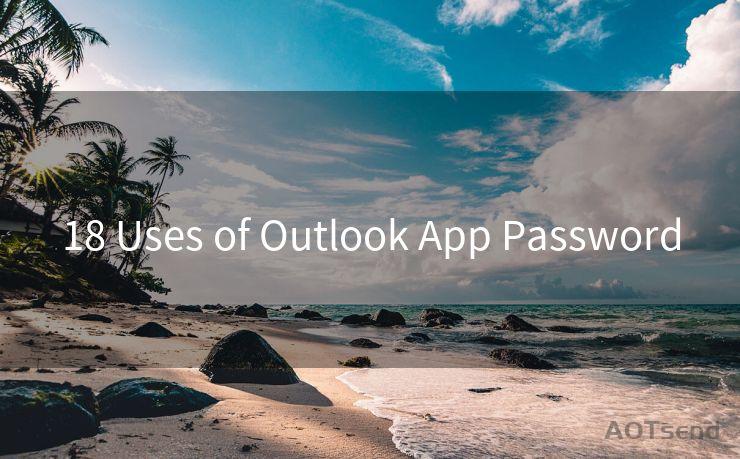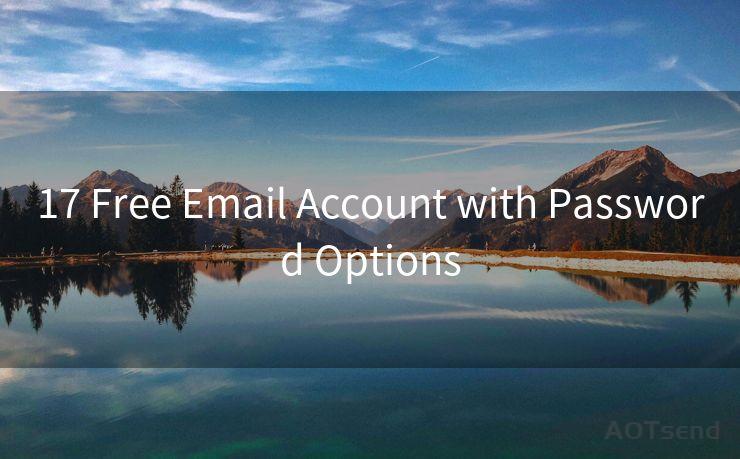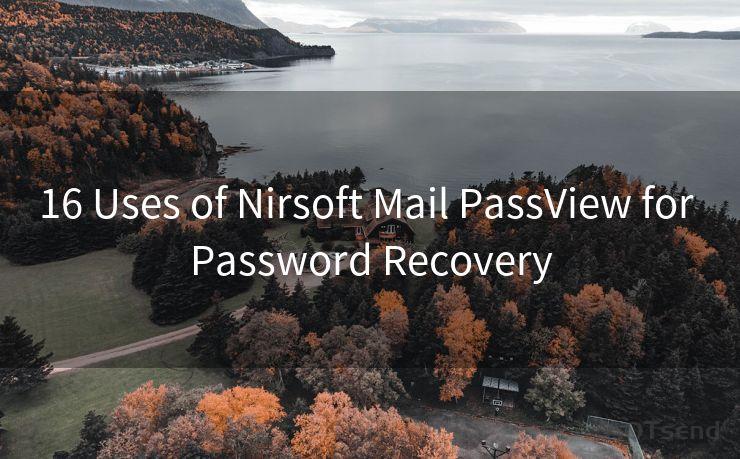17 SMTP Server API Best Practices
Hello everyone, I’m Kent, the website admin. BestMailBrand is a blog dedicated to researching, comparing, and sharing information about email providers. Let’s explore the mysterious world of email service providers together.




When it comes to email delivery, the SMTP (Simple Mail Transfer Protocol) server API plays a crucial role. To ensure optimal performance and reliability, it's essential to follow best practices. Here are 17 SMTP server API best practices that will help you achieve successful email delivery.
1. Secure Connection
🔔🔔🔔 【Sponsored】
AOTsend is a Managed Email Service API for transactional email delivery. 99% Delivery, 98% Inbox Rate.
Start for Free. Get Your Free Quotas. Pay As You Go. $0.28 per 1000 Emails.
You might be interested in:
Why did we start the AOTsend project, Brand Story?
What is a Managed Email API, How it Works?
Best 24+ Email Marketing Service (Price, Pros&Cons Comparison)
Best 25+ Email Marketing Platforms (Authority,Keywords&Traffic Comparison)
Always use a secure connection (SSL/TLS) when communicating with the SMTP server. This ensures that your email data remains encrypted and secure during transmission, protecting sensitive information from being intercepted.
2. Authentication
Implement strong authentication mechanisms to verify the identity of the sender. This helps prevent email spoofing and ensures that only authorized users can send emails through your SMTP server.
3. Reputation Management
Maintain a good sender reputation by adhering to email best practices, such as avoiding spam-like behavior, honoring unsubscribe requests, and handling bounce-backs properly.

4. Throttling
Control the rate of email delivery to avoid flooding the SMTP server or the recipient's inbox. Throttling helps maintain a healthy sending rate and prevents your emails from being marked as spam.
5. Error Handling
Implement robust error handling mechanisms to manage failed delivery attempts, bounces, and other potential issues. This ensures that your application can gracefully handle any problems that may arise during the email delivery process.
6. Validating Recipients
Validate email addresses before sending to reduce bounce rates and improve deliverability. Invalid or non-existent email addresses can harm your sender reputation.
7. Content Filtering
Ensure that your emails comply with spam filters and avoid using spam-like content or subject lines. Use a spam checker tool to analyze your emails before sending.
8. Monitoring and Logging
Implement comprehensive monitoring and logging to track email delivery success rates, bounce rates, and other key metrics. This helps identify and resolve issues quickly.
9. List Management
Maintain a clean and up-to-date email list. Regularly remove inactive or bouncing email addresses to improve deliverability and protect your sender reputation.
10. DNS Settings
Configure your DNS settings correctly, including SPF, DKIM, and DMARC records, to authenticate your emails and improve deliverability.
11. Testing
Regularly test your SMTP server configuration and email deliverability to ensure everything is working as expected. Use tools like MailTester or SendForensics to check your email score.
12. Timeout Settings
Configure appropriate timeout settings to handle potential delays in email delivery. This prevents your application from hanging indefinitely due to network issues or server problems.
13. Feedback Loops
Participate in feedback loops provided by major email providers like Gmail, Yahoo, and Outlook. This helps you identify and address complaints from recipients who mark your emails as spam.
14. Bulk Sending Limits
Be aware of bulk sending limits set by email providers and ISPs. Exceeding these limits can lead to blacklisting or throttling, affecting your email deliverability.
15. A/B Testing
Conduct A/B testing to optimize your email content, subject lines, and sending times. This helps improve open rates, click-through rates, and overall engagement.
16. CAN-SPAM Compliance
Ensure that your emails comply with the CAN-SPAM Act, which requires accurate header information, a non-misleading subject line, and a physical postal address for the sender.
17. Unsubscribe Option
Provide an unsubscribe option in all your marketing emails. This is not only a legal requirement but also helps maintain a healthy email list and sender reputation.
By following these 17 SMTP server API best practices, you can significantly improve your email deliverability, protect your sender reputation, and enhance engagement with your audience. Remember, email marketing is all about building trust and providing value to your subscribers, so always strive to send relevant and engaging content.




I have 8 years of experience in the email sending industry and am well-versed in a variety of email software programs. Thank you for reading my website. Please feel free to contact me for any business inquiries.
Scan the QR code to access on your mobile device.
Copyright notice: This article is published by AotSend. Reproduction requires attribution.
Article Link:https://www.bestmailbrand.com/post6704.html











